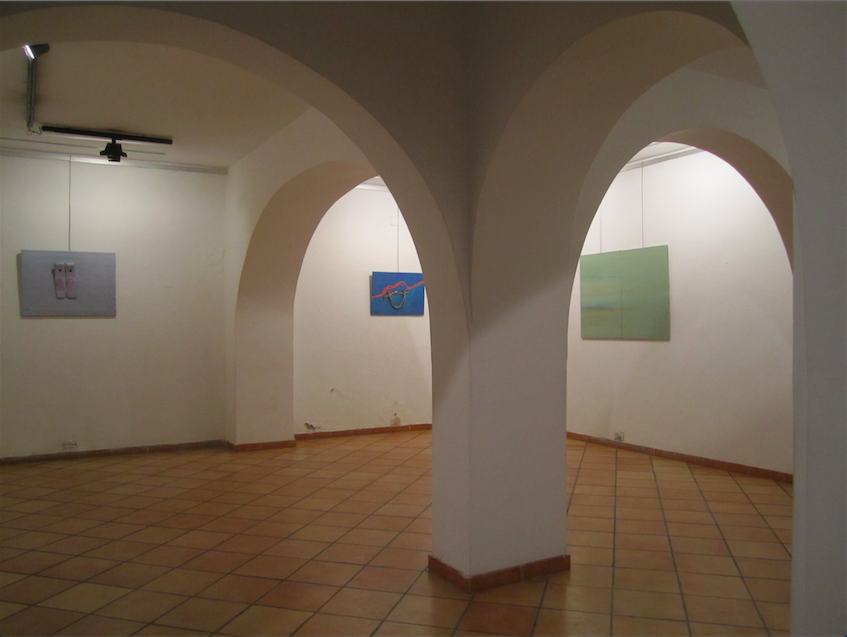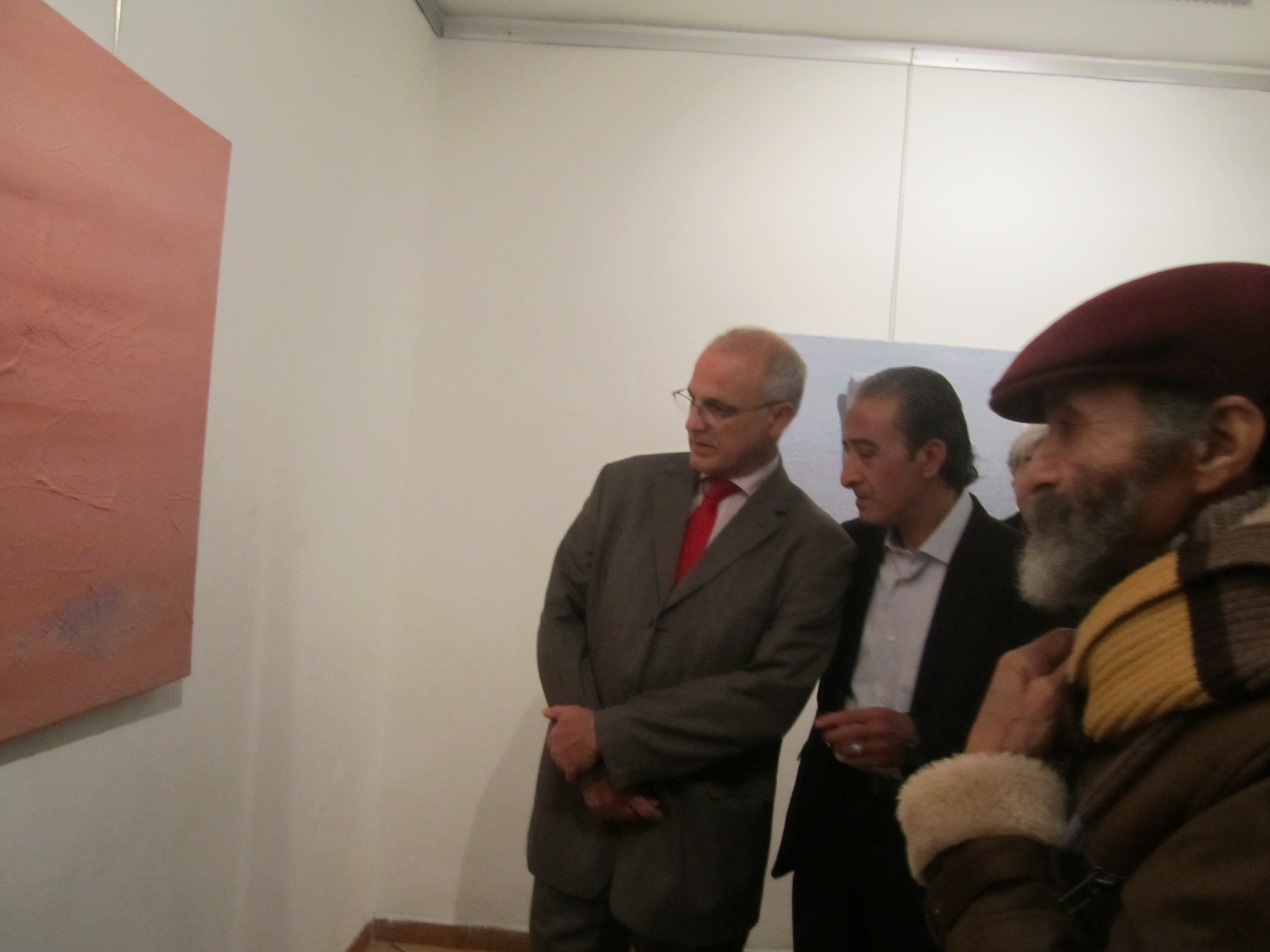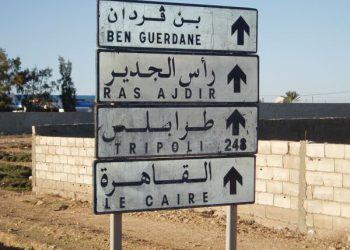By Tom Westcott and Taziz Hasairi.
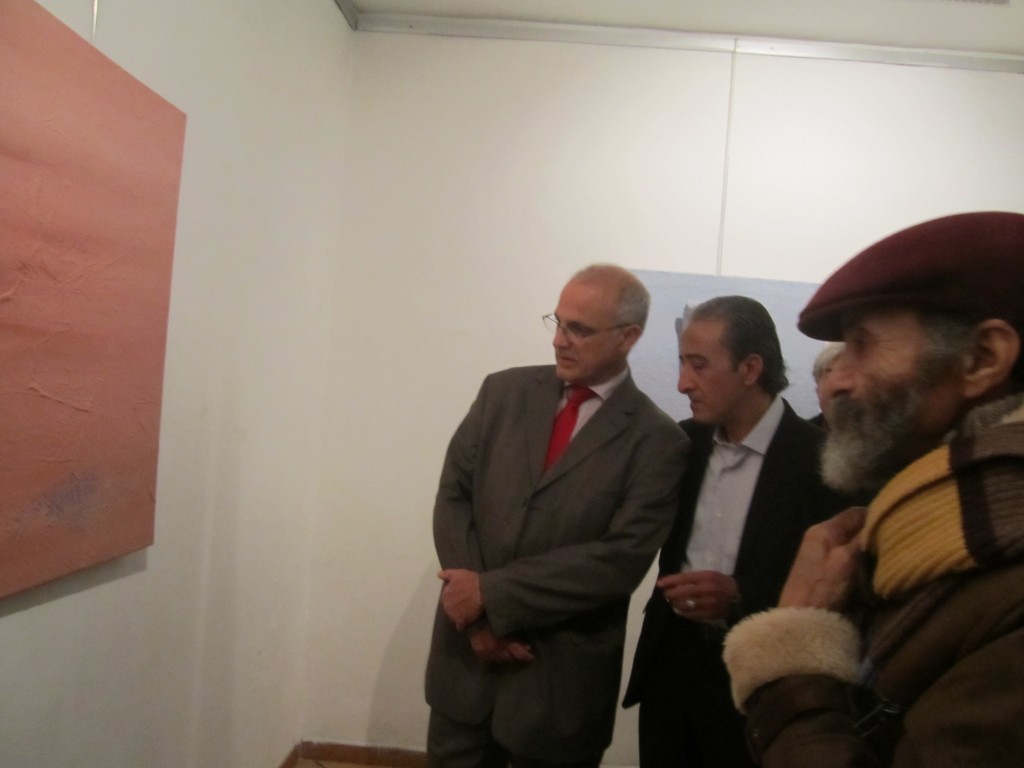
Tripoli, 20 January 2014:
An exhibition of abstract paintings inspired by the pre-historic rock art of the . . .[restrict]Akakus mountains, by Libyan artist Redwan Abushwesha, opened last night at Tripoli’s Art House.
Minister of Culture Habib Al-Amin and British Ambassador Michael Aron attended last night’s opening, and were given a guided tour of the paintings by softly-spoken Abushwesha.
The basement exhibition space was filled with admirers of Abushwesha’s work, both his paintings and his written work, which includes novels, short stories and film-scripts. Free copies of the fourth edition of At the Gateway to the Sea: Anonymous Margins from the History of Tripoli from 1803-1982 were available, which Abushwesha signed later in the evening.
The artworks, in oil paint and mixed media, were inspired by the rock art of the desert and, Abushwesha said, the exhibition is a celebration of two explorers of the rock art in the desert area of Akakus, Fabrizio Mari and Fuad Kabazi. “In this exhibition I have also used the colours of Libyan traditional fabrics and hand-made clothes all way from China,” he told the Libya Herald, adding that he had learned from Alhaj Abdullah, a Libyan weaver who died this week, as well as his mother.
“My identity is this magical home that gave me sand, desert and prehistoric art,” he said.
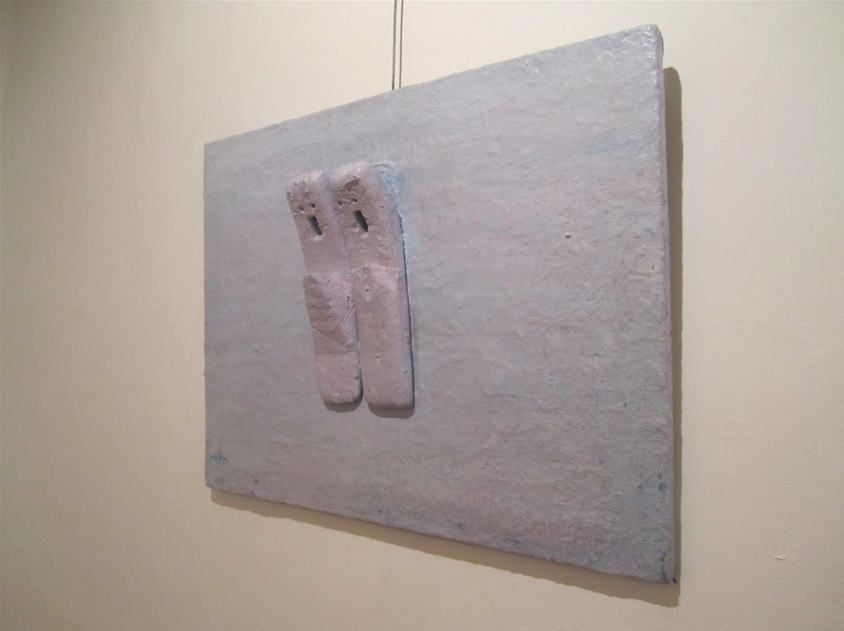
The exhibition includes a short film entitled ‘Chicken Soup,’ about an Arabic man in a London pub. Based on a short story by Abushwesha, the film was directed by his daughter Farah, a respected UK-based film producer in her own right.
Farah was smuggled out of Libya to Ireland to live with a grandparent when she was seven years old after Abusgwesha, along with 17 other writers and journalists, was put on trial under the former regime. Known as the Cultural Weekly trial – the name of the publication for which they worked – the 18 were accused of trying to overthrow the regime and re-establish the monarchy.
The court ruled that 12 of the writers should serve life sentences with the six others, including Abushwesha, allowed to go free but forbidden to leave Libya. Farah did not return to Libya until after the 17 February Revolution.
“Abushwesha is one of the top Libyan artists, so this is a very prestigious event,” event organiser Amal Salah Delacul told the Libya Herald. “This is one of the most important events here at the Art House.”
The exhibition will run until the end of January. The Art House is open from 9 am to 3 pm and 5 pm to 8 every day apart from Friday, when it is closed. It is on Al Sekka Road, near the Prime Minister’s Office.
